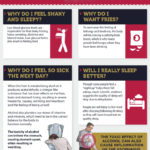As a site owner, you devote a great deal of time to finding ways to increase website traffic. To achieve this goal, search engine optimization (SEO) is of the utmost importance, as it helps you attain a high search engine ranking for your website. With a solid content distribution plan in place that focuses on SEO, you can boost the ROI of multiple marketing efforts.
Getting traffic to your website is rarely an easy task. If it was, more people would create their own sites and sell products to make money. Even with a snazzy, polished website and blog that features quality quality products and services, many brands struggle to generate the traffic they want.
An important factor that a lot of these brands fail to consider is the quality of traffic that they acquire. Benefiting from website traffic is more than just a numbers game. It isn’t enough to simply get a high visitor count. In most cases, your goal should be to attract as much organic traffic as possible, which ensures a higher rate of conversion and customer loyalty and retention.
Potential Sources of Website Traffic
Before we dive into the reasons as to why your site may not attract the quality traffic you expect, let’s look at the different types of website traffic.
Direct Traffic
“Direct traffic” refers to people who get to your site by either typing in your URL or clicking on a non-trackable link. These links are typically saved in browsers as bookmarks or embedded in PDFs, Word documents or emails.
Direct traffic is quite difficult to track and you have very little control over it. That’s why it’s usually more beneficial to focus on referral and organic traffic, both of which are easier to track. Plus, referral and organic traffic are fairly easy to influence.
Referral Traffic
“Referral traffic” refers to traffic that originates from other sites on the internet. In most cases, this traffic arrives at your site via links from other websites. Known as backlinks, these external links have the potential to benefit the target site in many ways.
Getting a backlink from a reputable and authoritative site is akin to receiving a vote of confidence. In a sense, the site hosting the link is going out of its way to indicate the reputability and trustworthiness of your site.
Quality backlinks aren’t easy to come by. You have to convince the originating site that you have something of relevance and value to offer to their audience. It could be a quality product or service, or more often, valuable content that is relevant to the interests of their users.
Getting a good amount of backlinks from authoritative sites will have a significant effect on your search engine ranking. Search engines, such as Google, hold these “votes of confidence” in high regard, considering them indicators of the reputability and value of your site. And because backlinks could help push your site to the top of the SERPs, they have a cumulative effect in terms of attracting more and higher quality traffic to your site.
Organic Traffic
From an SEO standpoint, “organic traffic” is by far the most beneficial type of traffic you can get. Although technically similar to referral traffic – in the sense that the traffic originates from external links – the links in question are usually found on SERPs rather than on third-party domains.
Organic traffic consists of people who arrive at your site by searching for your product or service, or your company or business name. This traffic essentially consists of a “captive audience” – people who are already interested in what you have to offer, whether it is information or a product or service. Because they are actively seeking out your website, you can assume they are more receptive to your message. And because of this, you have a much better chance of converting organic traffic to sales or direct action.
The short of it is that you will want to attract as much organic traffic as possible. Unfortunately, this is also the most difficult type of traffic to attract. In the following sections, we will go over some of the obstacles that tend to get in the way of attracting organic traffic.
Unfocused Keyword Strategy
Effective keyword implementation significantly affects your ability to attract organic traffic. Conversely, poor keyword implementation results in low search engine rankings, meaning you’re less likely to attract people to your site who are already in the consideration or decision stage of the buyer’s journey. Check out Hubspot’s article on the buyer’s journey to learn more about these stages.
(Notice how we just included a backlink to Hubspot. We are providing you with a good user experience because we provided you with a link to easily find valuable information relating to the topic we are presently discussing. this is a good example of properly using backlinks to increase traffic to our site. Google is going to love that we included a backlink to a high-authority domain, and in turn, Google is going to increase our search engine ranking).
Effective keyword strategy involves identifying high-value keywords and developing your SEO around these keywords. When gauging the potential value of keywords, some of the most important key performance indicators (KPIs) to take note of are overall search volume and the number of relevant keywords that appear on the first page of search engines. You can then develop an effective keyword implementation strategy based on this data. Check out this article on effective keyword strategies to learn more.
Not Enough Backlinks
We’ve already covered the importance of backlinks in a previous section. Even with proper keyword implementation, you could still fail to achieve your organic traffic goals if you don’t have enough high-quality backlinks on your site.
The emphasis here is on quality. Although getting a sizeable number of backlinks is a worthy goal, you have to make sure these links originate from high-quality, high-authority sites. A slew of spammy links from dubious websites is worse than useless. They can get your site flagged as being poor quality, which pulls down your search engine rankings and hinders your ability to get organic traffic.
Poor Content
“Content is key.” The phrase is ubiquitous enough to be something of a cliché by now, but it is still true to a large extent. To this day, having useful and relevant content is probably the single most important factor in enabling you to get a healthy amount of organic traffic.
Good content marketing comes in many forms. Interesting and compelling text content that provides useful and relevant information is always valuable. This type of content proves beneficial for establishing your site’s authority. Furthermore, it has a good chance of appealing to other site owners who will be more likely to give you a “thumbs up” in the form of backlinks for the valuable content that you provide.
Consider other types of content as well. Infographics, video, and multimedia content are especially attractive to search engines, high-authority sites, and general users. Informative, helpful, and easy to digest, these types of visual content are ideally-suited for meeting your goals of attracting organic traffic.
 Messy Technical SEO
Messy Technical SEO
What goes on underneath the page is often just as important as the visible elements. Off-page SEO elements such as tags, headings, meta descriptions, and the like all play important roles in establishing your site as a user-friendly one that provides a rewarding experience to as many users as possible.
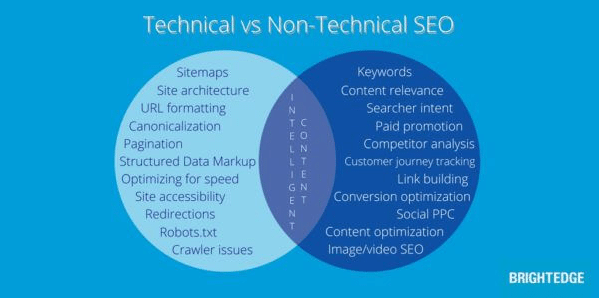
Lack of Social Media Engagement
Although there are significant benefits to gain by attracting organic traffic via SEO, don’t neglect the opportunities to generate interest via social media either. With so many people spending hours on social media every day, underutilizing this resource puts you at a strict disadvantage when compared to those who already leverage social media marketing to their advantage.
It’s imperative to actively pursue audience engagement in as many ways as possible. Whether this means maintaining an active presence on your various social media channels, producing interesting and relevant content that has a potential to go viral, or simply addressing customer concerns and queries, better engagement generates interest. This, in turn, will have a perceivable effect in terms of increasing organic traffic to your domain.
Now that you know about the top five reasons your site is lacking the organic traffic it needs to succeed, we’re going to share a little secret with you. The easiest way to increase organic traffic and boost your revenue is to let a professional marketing agency handle your online marketing for you. Contact IGW now to partner with an industry leader that excels in increasing organic web traffic.


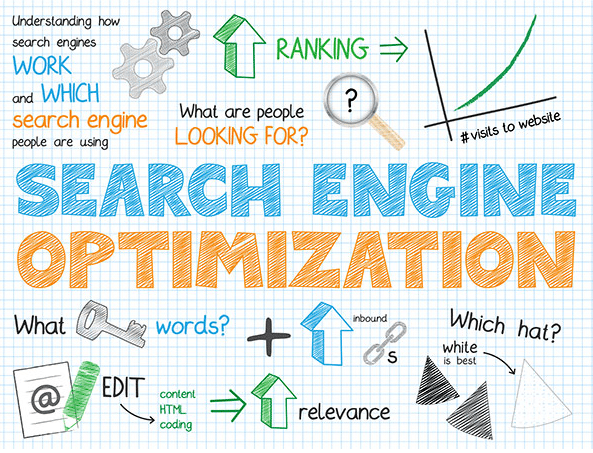
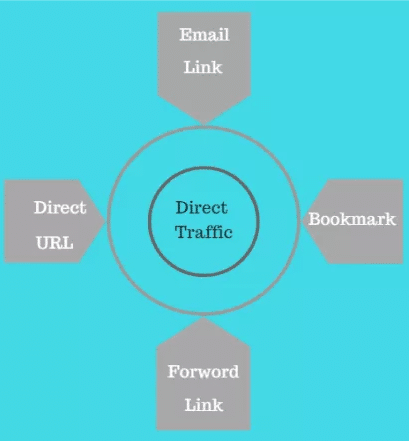
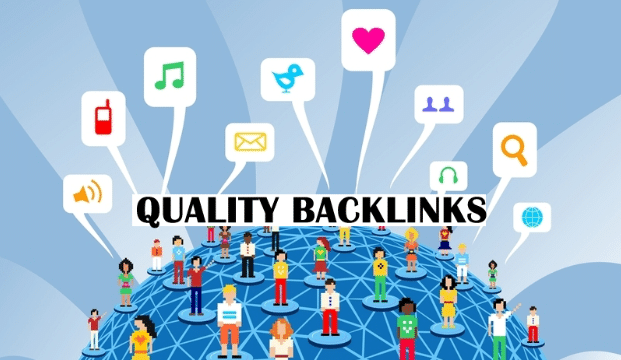
 Messy Technical SEO
Messy Technical SEO